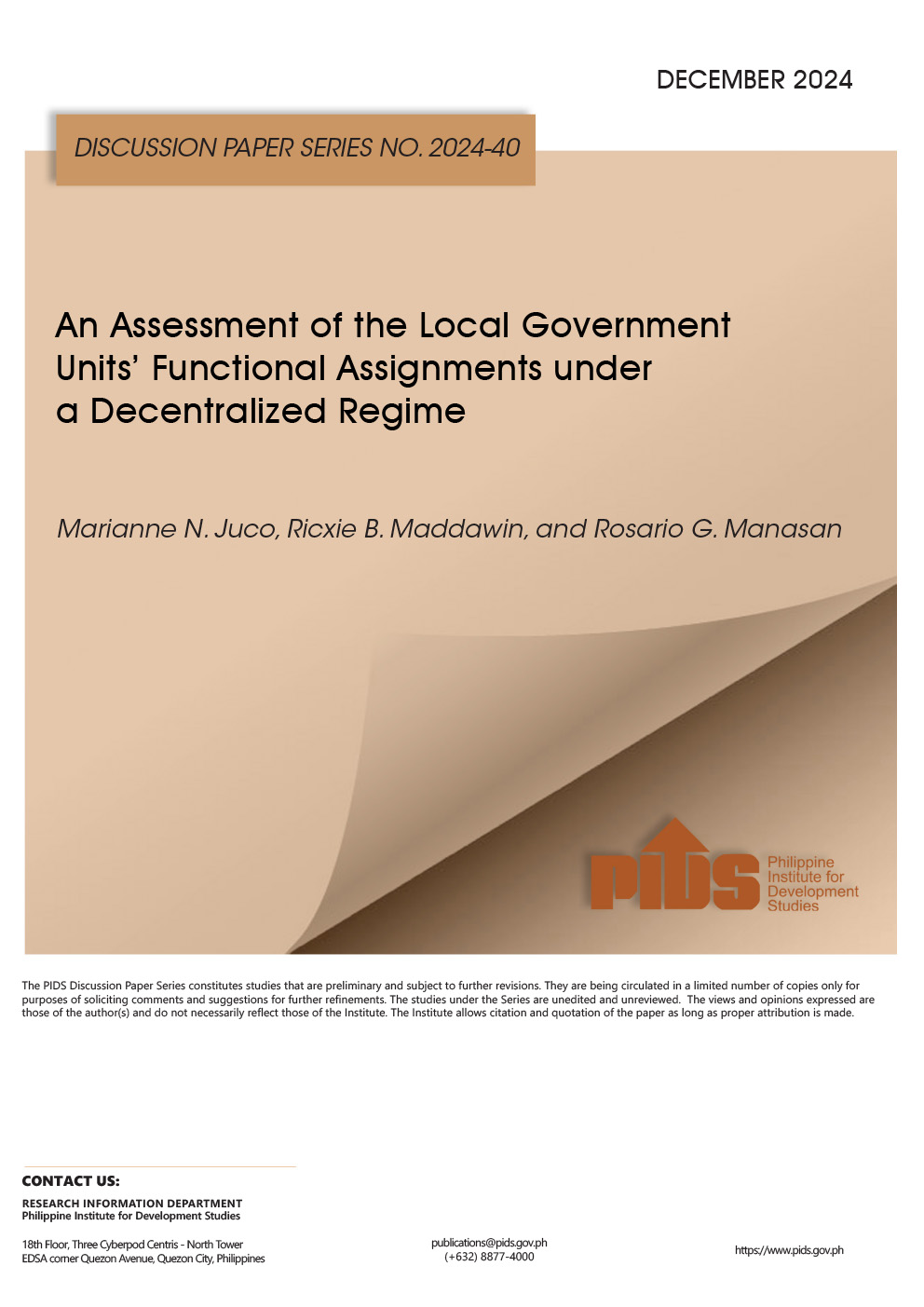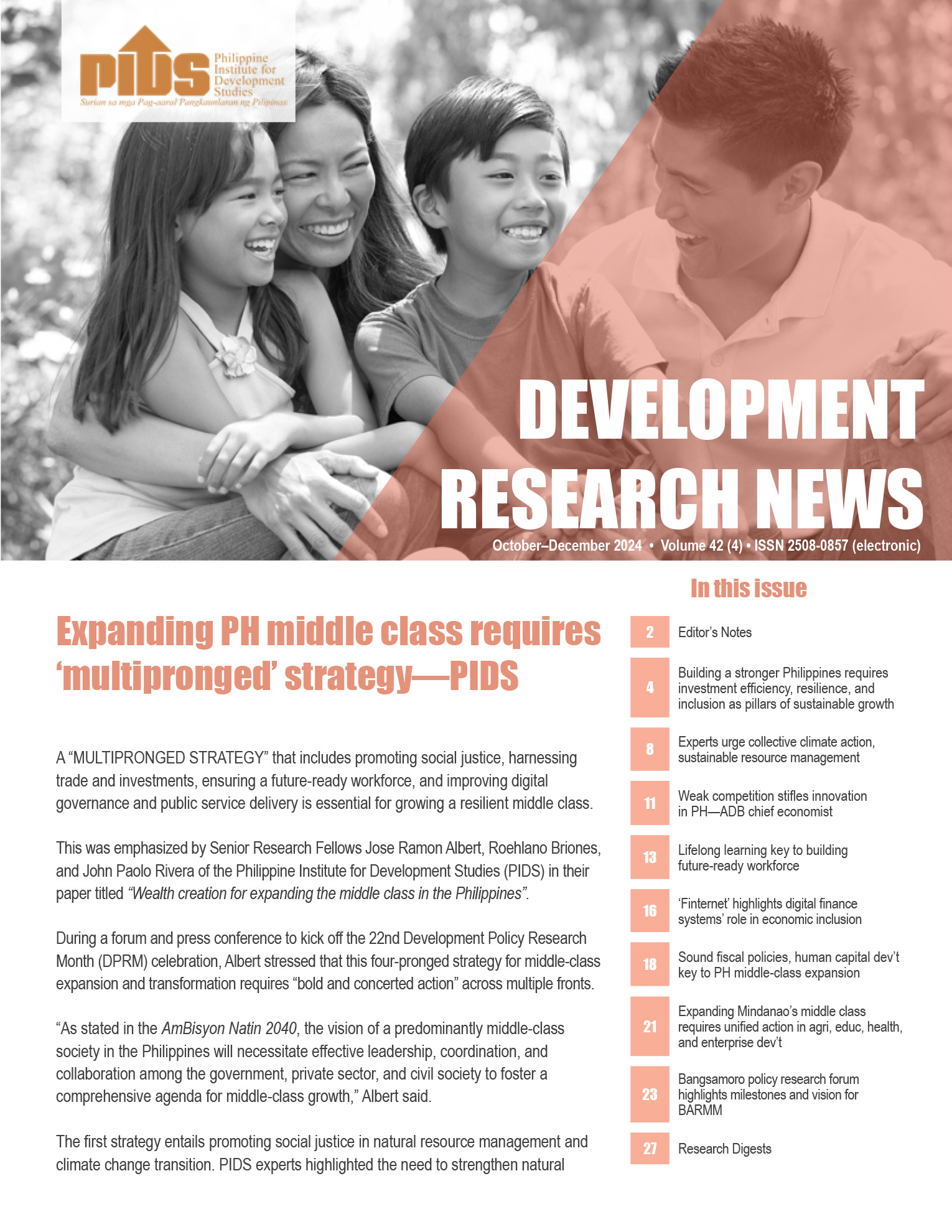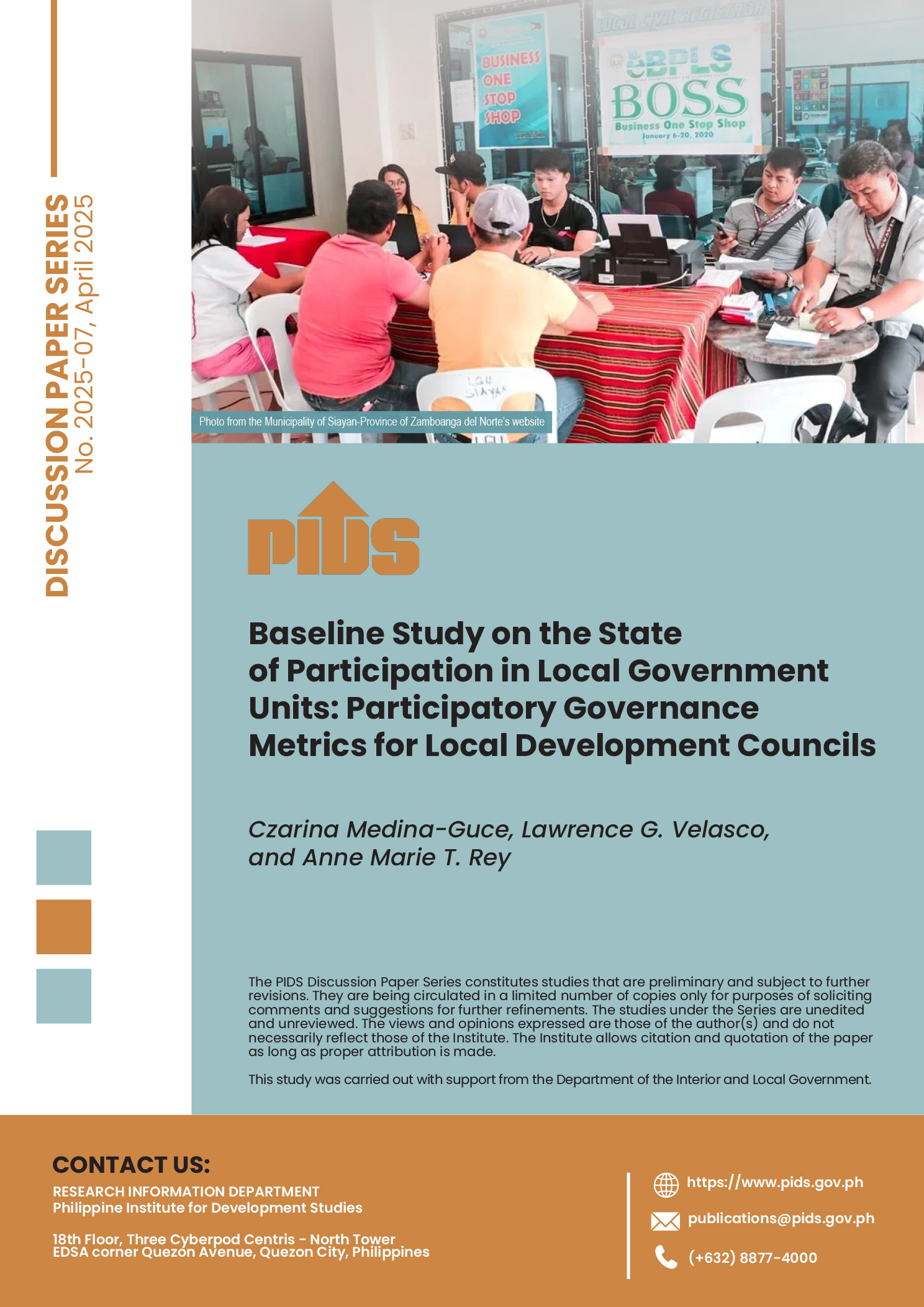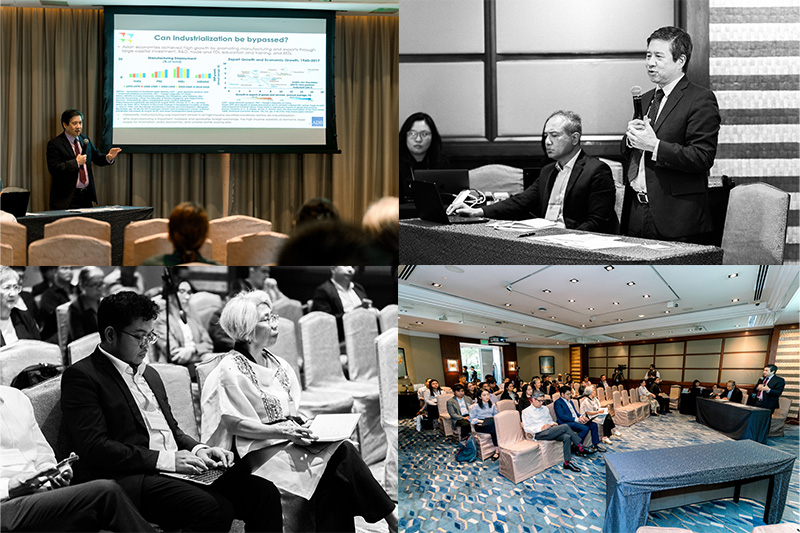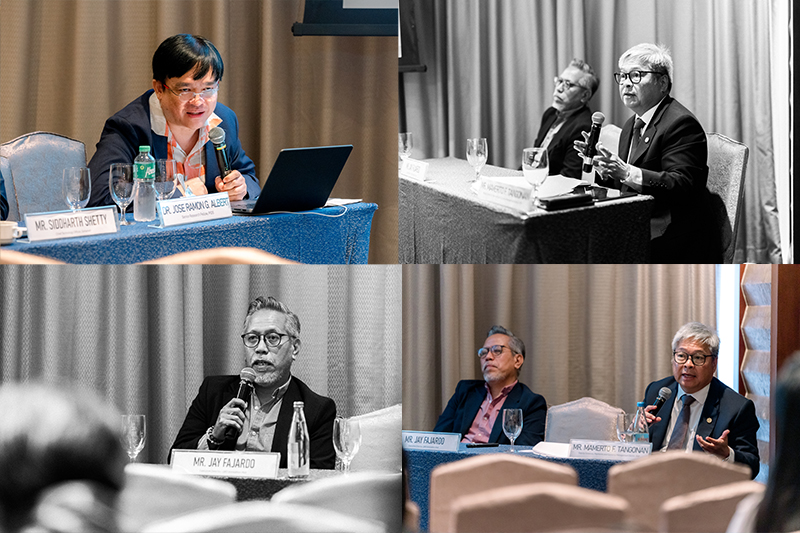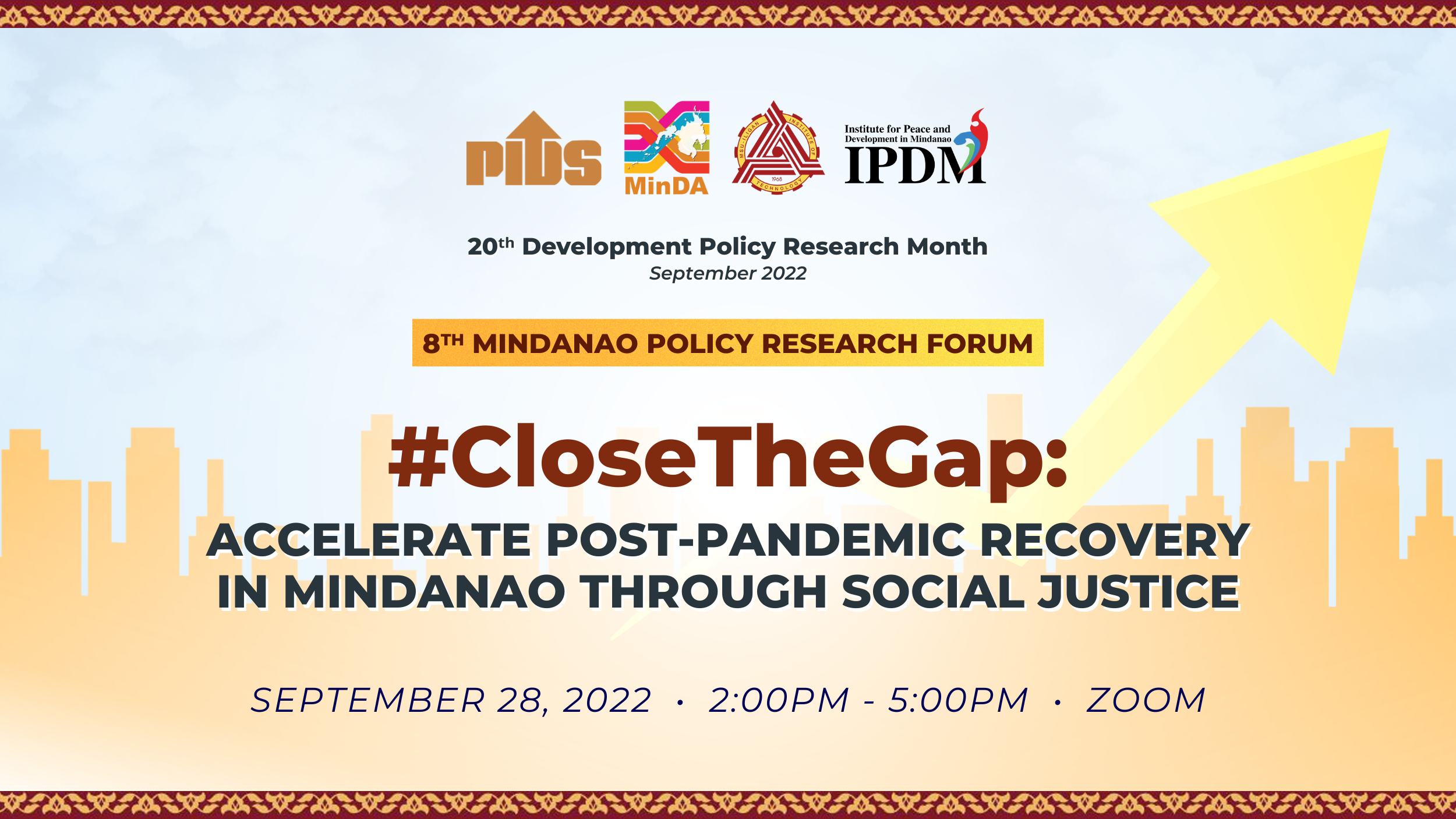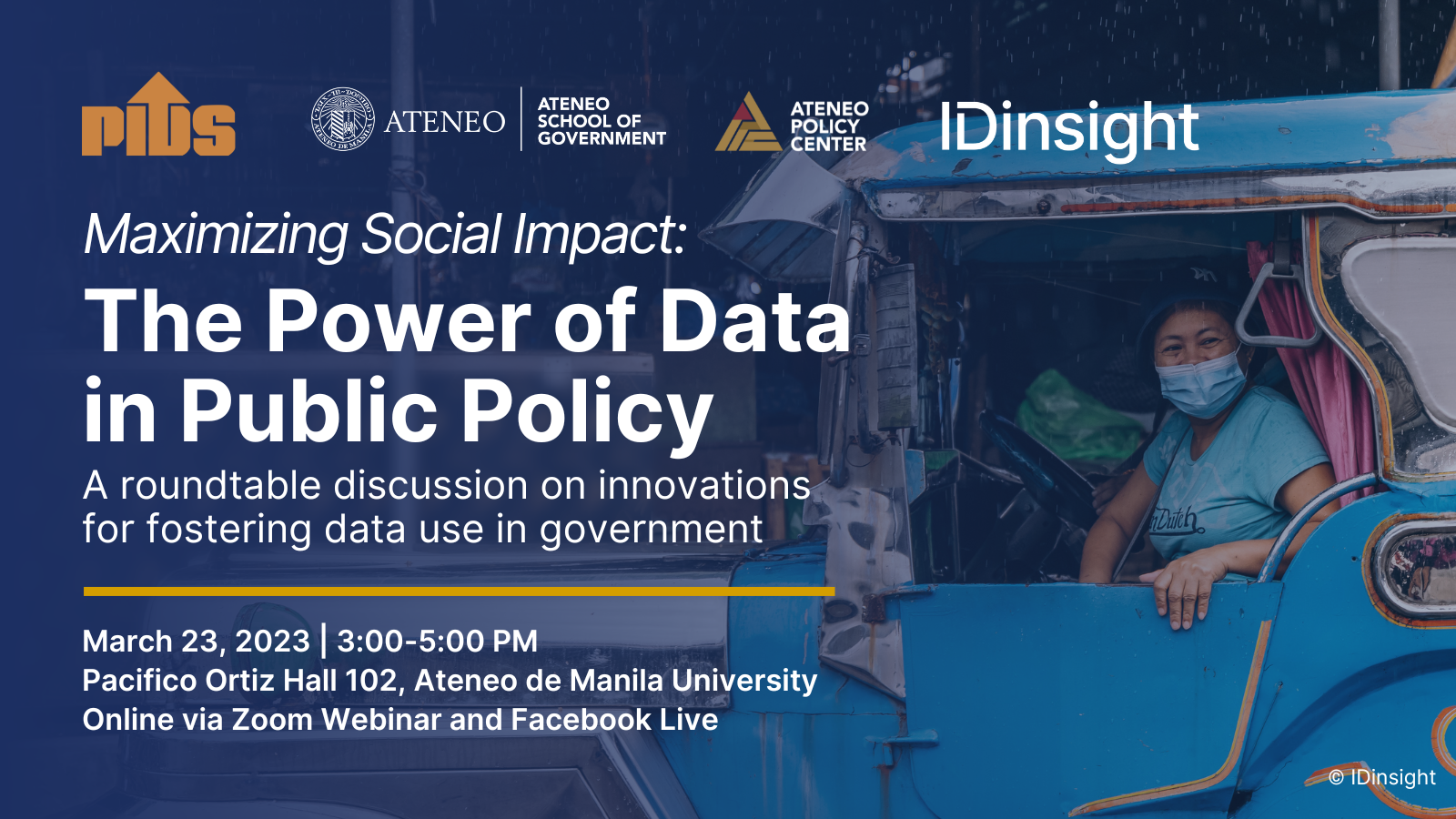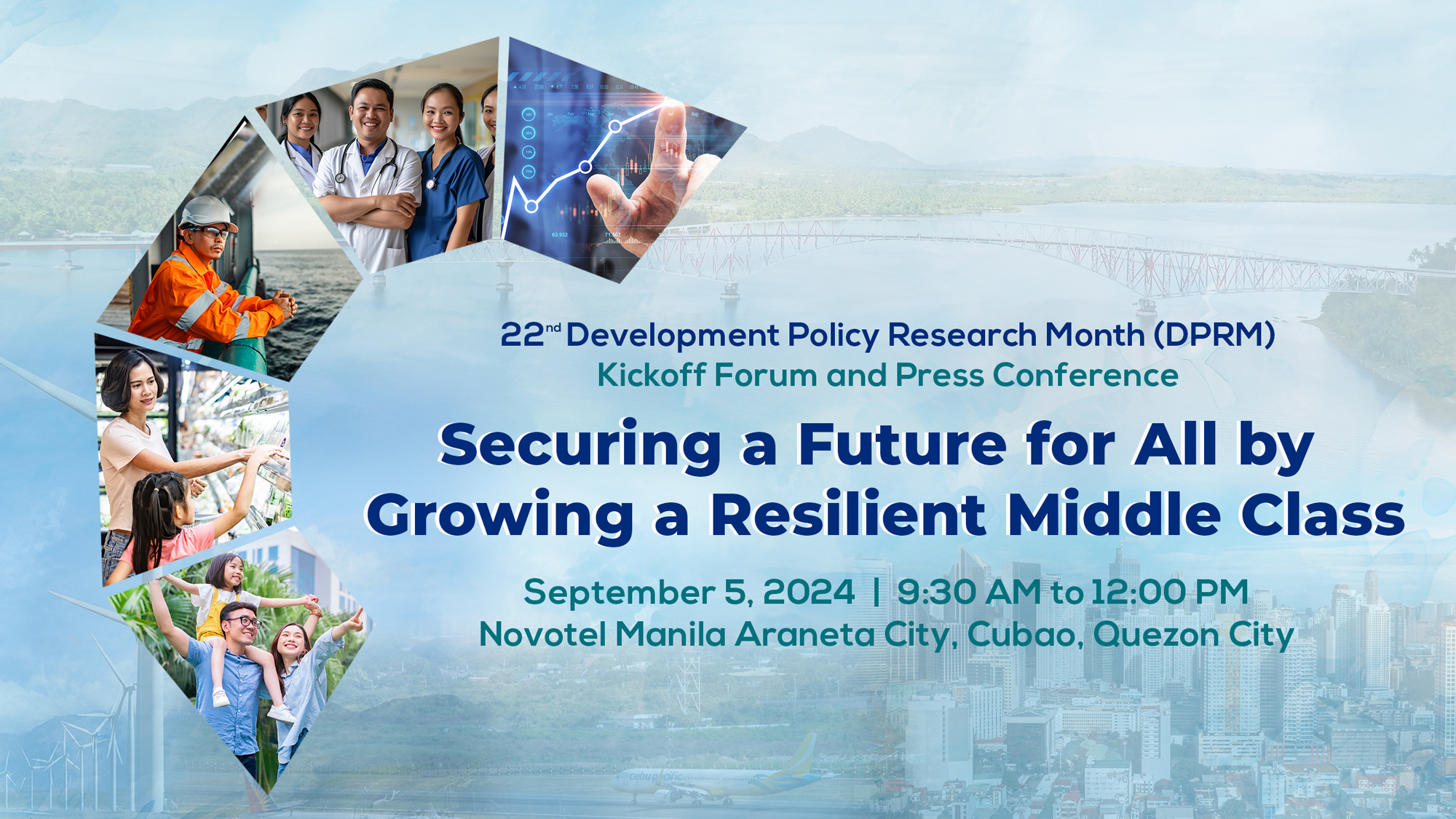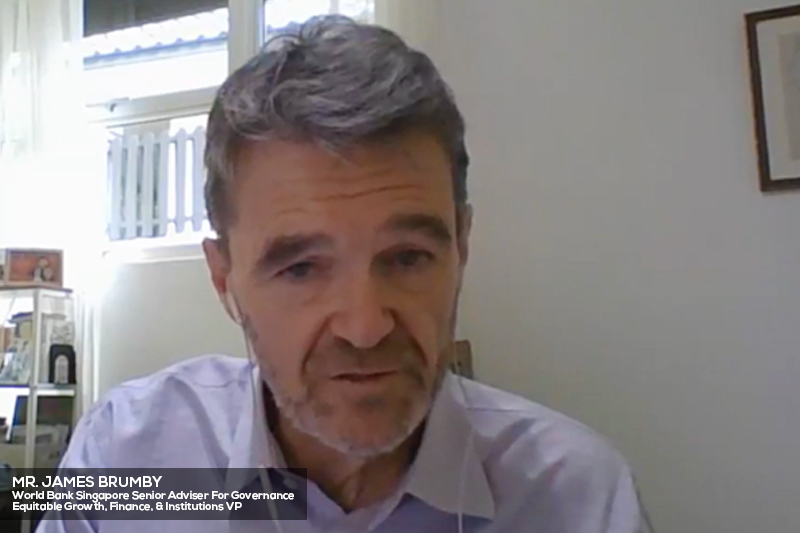
Governments should reshape and shift their existing approaches to ensure the effective and efficient delivery of public services, especially in a crisis like the coronavirus pandemic.
Dr. James A. Brumby, Senior Adviser for Governance, Equitable Growth, Finance and Institutions VP of the World Bank Group Singapore, stressed this during the first of the four-part webinar series of the 6th Annual Public Policy Conference (APPC) titled “Innovation in Public Sector Governance for Resilience under a New Normal: Theory and Practice” held recently.
He noted that in many countries, the public sector has been found to be lacking in the overall response to the current pandemic.
Brumby said that the only way to regain governments' position is to explore and rethink their approaches to the public health emergency rather than look at past experiences.
“The past may not be a good guide to the future. This is the worst pandemic since the Spanish Flu, the worst global downturn since the Great Depression of the 1930s, but none of us have lived to experience these,” Brumby explained.
To shape the future of governments, Brumby said that some factors should influence service delivery.
One is contagion risk, which he said is “determined by the prevalence of the physical proximity within public service workforce for a given function, proximity between workforce, customers, and clients and physical objects that need to be passed from one to another, and the shared ‘space, materials, and air’ between or across groups”.
He explained that the reduction of virus transmission might “involve capital works” and “changes in work actions and practices” that will be “required to manipulate or guide demand” in government.
Another factor is technological process substitution through digitalization. Brumby said that government must embrace new technologies and digital systems to improve service delivery. He mentioned that some government services could be digitalized, such as tax administration, one-stop shops, immigration registration, customs and employment services, and public transportation.
He also said that governments would have to deal with fiscal and wider public financial risks due to the outbreak. “A large economic programs support in 2020 will crowd out public spending in future years,” Brumby pointed out.
Lastly, Brumby said that government information would be challenged during the pandemic.
“The pandemic showed that nontraditional information sources might be increasingly important and profoundly influential,” he said, adding that, “governments need to get used to the idea of big data.”
According to him, nontraditional information sources include human mobility data, satellite data, crowdsourced user data, transaction data, text mining, and data fusion. These, he said, can trigger more direct actions from citizens and impel governments to act.
The APPC is the main and culminating activity of the Development Policy Research Month (DPRM) celebration led by the state think tank Philippine Institute for Development Studies every September.
The DPRM aims to promote awareness and understanding of policy research's importance in formulating evidence-based policies, plans, and programs. This year’s DPRM theme is Bouncing Back Together: Innovating Governance for the New Normal or Makabagong Pamamahala para sa Sama-samang Pagbangon sa New Normal. ###
Dr. James A. Brumby, Senior Adviser for Governance, Equitable Growth, Finance and Institutions VP of the World Bank Group Singapore, stressed this during the first of the four-part webinar series of the 6th Annual Public Policy Conference (APPC) titled “Innovation in Public Sector Governance for Resilience under a New Normal: Theory and Practice” held recently.
He noted that in many countries, the public sector has been found to be lacking in the overall response to the current pandemic.
Brumby said that the only way to regain governments' position is to explore and rethink their approaches to the public health emergency rather than look at past experiences.
“The past may not be a good guide to the future. This is the worst pandemic since the Spanish Flu, the worst global downturn since the Great Depression of the 1930s, but none of us have lived to experience these,” Brumby explained.
To shape the future of governments, Brumby said that some factors should influence service delivery.
One is contagion risk, which he said is “determined by the prevalence of the physical proximity within public service workforce for a given function, proximity between workforce, customers, and clients and physical objects that need to be passed from one to another, and the shared ‘space, materials, and air’ between or across groups”.
He explained that the reduction of virus transmission might “involve capital works” and “changes in work actions and practices” that will be “required to manipulate or guide demand” in government.
Another factor is technological process substitution through digitalization. Brumby said that government must embrace new technologies and digital systems to improve service delivery. He mentioned that some government services could be digitalized, such as tax administration, one-stop shops, immigration registration, customs and employment services, and public transportation.
He also said that governments would have to deal with fiscal and wider public financial risks due to the outbreak. “A large economic programs support in 2020 will crowd out public spending in future years,” Brumby pointed out.
Lastly, Brumby said that government information would be challenged during the pandemic.
“The pandemic showed that nontraditional information sources might be increasingly important and profoundly influential,” he said, adding that, “governments need to get used to the idea of big data.”
According to him, nontraditional information sources include human mobility data, satellite data, crowdsourced user data, transaction data, text mining, and data fusion. These, he said, can trigger more direct actions from citizens and impel governments to act.
The APPC is the main and culminating activity of the Development Policy Research Month (DPRM) celebration led by the state think tank Philippine Institute for Development Studies every September.
The DPRM aims to promote awareness and understanding of policy research's importance in formulating evidence-based policies, plans, and programs. This year’s DPRM theme is Bouncing Back Together: Innovating Governance for the New Normal or Makabagong Pamamahala para sa Sama-samang Pagbangon sa New Normal. ###

